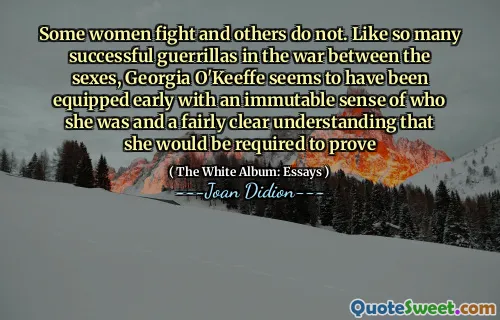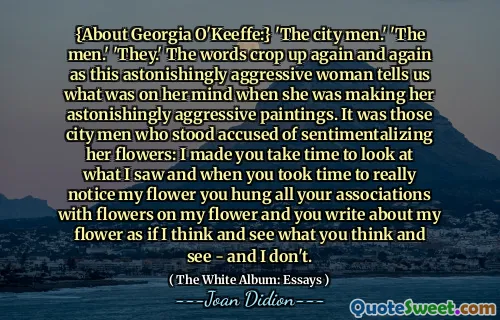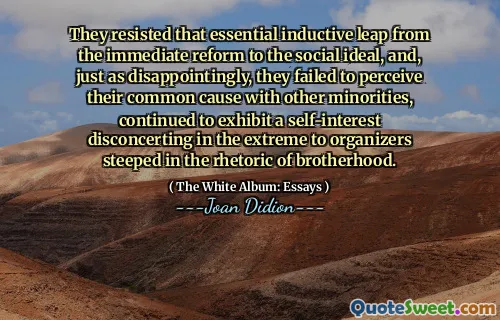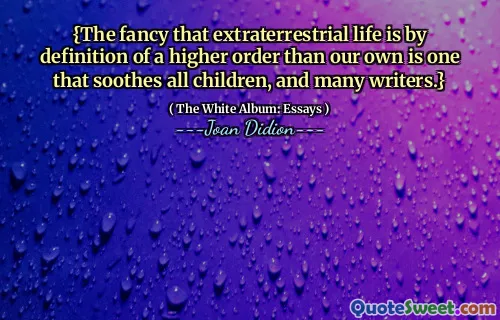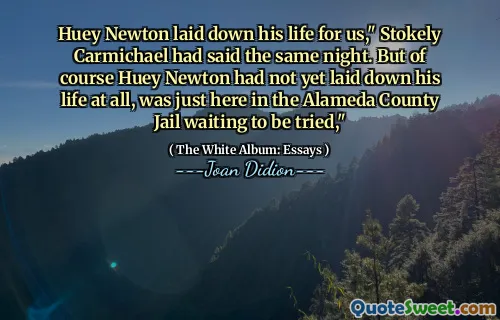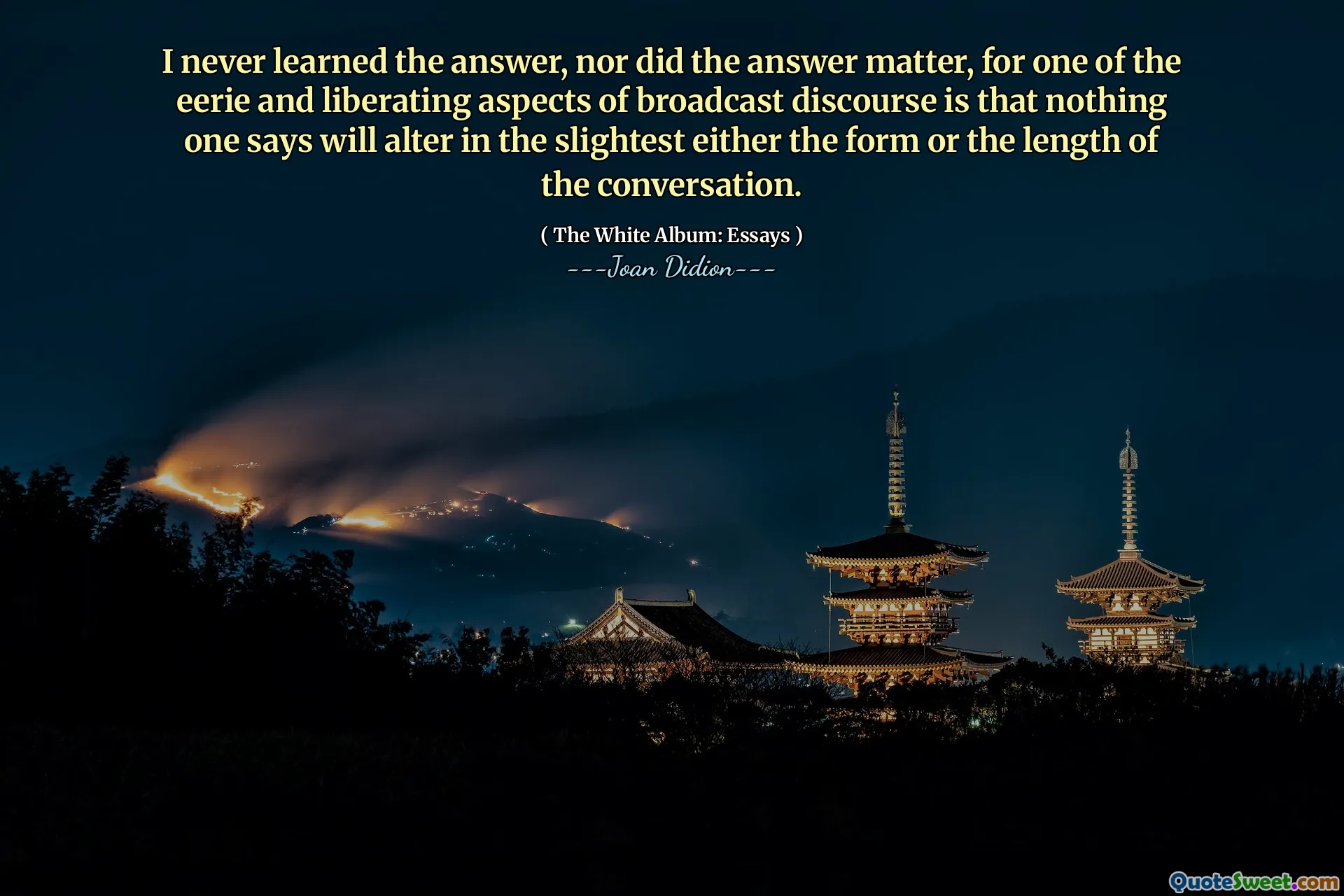
I never learned the answer, nor did the answer matter, for one of the eerie and liberating aspects of broadcast discourse is that nothing one says will alter in the slightest either the form or the length of the conversation.
In her essay "The White Album," Joan Didion reflects on the nature of broadcast communication, emphasizing its inherent disconnect between speaker and audience. She illustrates that regardless of what is said, the structure and duration of the conversation remain unchanged, suggesting a sense of futility in striving for impactful discourse. This insight points to the broader theme of alienation in modern communication, where meaningful connections are often elusive.
Didion's observation evokes a sense of liberation amidst this dilemma, as the pressure to be persuasive or profound dissipates. The realization that one's contributions do not significantly alter the conversation can be both eerie and freeing, allowing individuals to engage more authentically without the weight of expectation. This nuanced perspective on communication challenges traditional notions of dialogue and invites a deeper understanding of our interactions.
